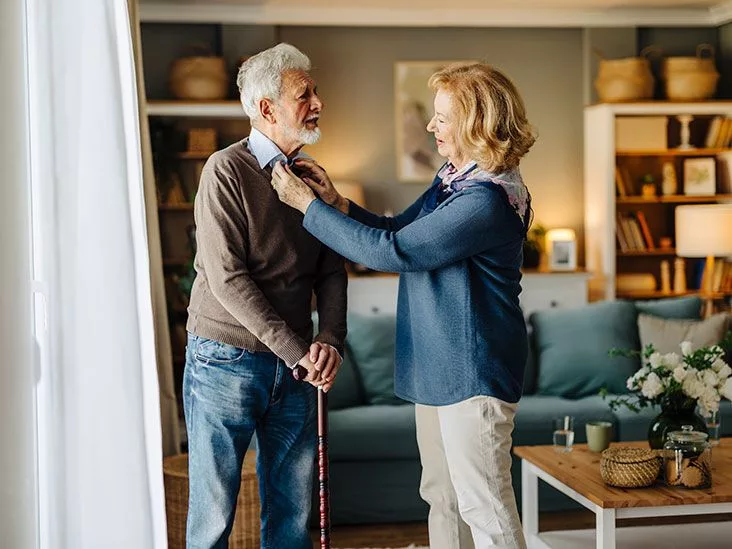Finding yourself suddenly responsible for a loved one’s prostate cancer journey can feel like being handed a life‑size jigsaw puzzle with pieces you’ve never seen before. You want to help, but you’re also juggling work, family, and your own emotions. Below you’ll discover the most useful, down‑to‑earth actions you can take today—not tomorrow—to support your loved one while keeping yourself healthy, sane, and hopeful.
Understanding Caregiver Role
First things first: what does “supporting a prostate cancer caregiver” actually mean? The role breaks down into three clear pillars—informational, practical, and emotional support. Each pillar is a piece of the puzzle, and together they create a solid foundation for both the patient and you.
Informational Support
Think of yourself as the family’s “information specialist.” Prostate cancer can involve terminology like “active surveillance,” “radical prostatectomy,” and “androgen deprivation therapy.” Knowing the basics helps you ask better questions at the doctor’s office and calm your loved one’s nerves.
- Staging & treatment options: Learn whether the cancer is localized or has spread, and what each treatment pathway looks like.
- Side‑effects: Incontinence, sexual changes, fatigue—understanding these ahead of time lets you plan practical coping strategies.
- Resources: Trusted sites such as ZERO’s stages guide and the CancerCare caregiver booklet provide plain‑language explanations.
Practical Support
Practical help is everything you do that eases daily life: managing medications, coordinating appointments, handling transportation, and keeping track of paperwork. A simple, well‑organized health‑care journal can be a lifesaver—note down dates, doctor names, medication changes, and any questions that pop up.
Emotional Support
Emotions run high for both the patient and the caregiver. Your job isn’t to fix feelings, but to create a safe space where they can be expressed. Active‑listening—mirroring back what you hear and validating feelings—helps your loved one feel heard without the pressure of “being strong.”
Building Prostate Knowledge
Knowledge isn’t just power; it’s peace of mind. When you feel equipped, you can act confidently and reduce the “unknown” that fuels anxiety.
Where to Find Reliable Information
Not every website is created equal. Look for sources that:
- End in
.org,.gov, or.edu. - List authors with medical credentials (e.g., MD, RN, PhD).
- Update their content regularly—cancer science evolves quickly.
According to a recent clinical study, patients whose families are well‑informed tend to adhere better to treatment plans and report higher quality of life.
Key Concepts Every Caregiver Should Master
| Concept | Why It Matters |
|---|---|
| Active Surveillance | Monitoring low‑risk cancer without immediate treatment; reduces overtreatment. |
| Radical Prostatectomy | Surgical removal; may cause urinary or sexual side‑effects that need support. |
| Radiation Therapy | External beam or brachytherapy; can cause fatigue and bowel changes. |
| Hormone Therapy | Blocks testosterone; may lead to hot flashes, bone loss, mood shifts. |
Creating a Health‑Care Journal
Start with a simple notebook or a Google Doc. Include these columns:
- Date & Time
- Provider (doctor, nurse, therapist)
- Key Points (diagnosis, test results, recommendations)
- Questions you want to ask next visit
- Action Items (medication changes, follow‑up appointments)
Review the journal with your loved one before each appointment—this keeps you both on the same page.
Emotional Practical Support
Now that you have the facts, let’s talk about heart. Caring isn’t only about checklists; it’s about connection.
Communicating with Sensitivity
Ever feel tongue‑tied around a serious topic? Try these conversation starters:
- “How are you feeling about the treatment plan we heard today?”
- “Is there anything you’d like me to help you research?”
- “What’s one thing that would make today a little easier for you?”
Notice how open‑ended questions invite dialogue without pressuring them to “be positive.”
Practical Tips You Can Use Right Now
- Medication organization: Use a weekly pill‑box labelled by day and time.
- Appointment logistics: Write down parking instructions, insurance card location, and any required fasting instructions the night before.
- Note‑taking: Bring a voice recorder (with permission) or a laptop to capture key points; you’ll thank yourself later.
Intimacy & Sexual Health
Sexual changes after treatment can feel like a taboo topic, but they’re important. Approach the subject gently:
“I’ve read that some men experience changes after surgery. Would you like us to explore ways to stay close, physically or emotionally?”
Zero’s “Forum for Her” support group (a community for partners) offers a safe space to discuss these matters. You can join the conversation here.
Caregiver Self Care
If you’re running on empty, you can’t pour into anyone else. Self‑care isn’t selfish; it’s survival.
Why Self‑Care Matters
Research from the Prostate Cancer Foundation shows that caregivers who neglect their own health are up to 40 % more likely to develop chronic stress‑related conditions. Burnout can erode your ability to provide both emotional and practical support.
Micro‑Breaks You Can Slip Into a Busy Day
- Five‑minute breathing: Inhale for 4 seconds, hold for 4, exhale for 4. Repeat four times.
- Stretch at the kitchen sink: Reach overhead, roll shoulders—helps release tension.
- Hydration reminder: Keep a bottle of water nearby; dehydration worsens fatigue.
When to Seek Professional Help
Watch for red flags such as persistent sadness, loss of interest in activities you once loved, or sleep disturbances lasting more than two weeks. A therapist who specializes in caregiver stress can provide coping tools. Many insurers cover tele‑health counseling—check your benefits.
Navigating Healthcare System
Medical jargon, insurance forms, and endless appointments can feel like a maze. Here’s how to keep your compass pointing north.
Preparing for Appointments
Use the “5‑Question Cheat Sheet” before each visit:
- What is the primary goal of today’s visit?
- What are the potential side‑effects of the recommended treatment?
- How will we monitor progress?
- What costs or insurance considerations should I be aware of?
- What resources are available for support?
Advocating Effectively
When you feel the doctor’s explanation is unclear, politely ask for clarification: “Could you please repeat that in simpler terms?” Bring a friend or a “patient navigator” if your loved one feels overwhelmed.
Understanding Insurance & Financial Resources
Most Medicare plans cover prostate cancer treatment, but copays can add up. The Prostate Cancer Foundation’s financial resources page lists assistance programs, prescription discount cards, and charity grants that can ease the burden.
Resources & Community
You don’t have to go it alone. Below are the “go‑to” places where you can find peer support, printable tools, and local events.
Top Online Support Groups
- ZERO “A Forum for Her” – a closed community for partners; offers monthly virtual chats.
- Prostate Cancer Foundation private Facebook group – moderated, safe space for caregivers.
- Us TOO “Forum for Her” – a women‑focused forum that blends emotional support with practical advice.
Free Printable Tools
Download a caregiver journal template, a medication tracker, and a symptom‑log checklist. Print them out and keep a binder by the couch for quick access.
Finding Local In‑Person Support
Use ZERO’s “Near Me” locator to discover support groups, workshops, or oncology nutrition classes in your area. Even a short 30‑minute meeting can provide a dose of shared experience that feels like a warm hug.
Common Pitfalls Balanced
Even the best‑intentioned caregiver can slip into habits that drain energy. Let’s spot them early.
Information Overload
It’s tempting to read every article, watch every video, and join every forum. Set a daily limit—perhaps 30 minutes of research—and focus on vetted sources. Remember, the goal is clarity, not confusion.
Pressuring a “Positive Attitude”
While optimism can be helpful, forcing a smile often masks real feelings. A study from the Prostate Cancer Foundation found that caregivers who felt pressure to stay upbeat reported higher anxiety levels. Offer space for honest emotions instead.
Neglecting Your Own Health
Skipping your doctor’s appointments, ignoring exercise, or dismissing sleep problems will eventually catch up. Schedule a quarterly “check‑in” with your own primary care provider—just as you would for your loved one.
Conclusion
Supporting a prostate cancer caregiver is a journey of learning, loving, and listening. By mastering the three pillars—knowledge, compassionate action, and self‑care—you create a stable foundation that benefits both the patient and yourself. Pick one small step today: perhaps start that health‑care journal, join an online support group, or simply take a five‑minute breathing break. You’re not alone, and every thoughtful action adds up to a stronger, healthier family unit.
What’s the first thing you’ll try? Share your thoughts in the comments, or reach out to a trusted community—you deserve the same care you’re giving.


















Leave a Reply
You must be logged in to post a comment.